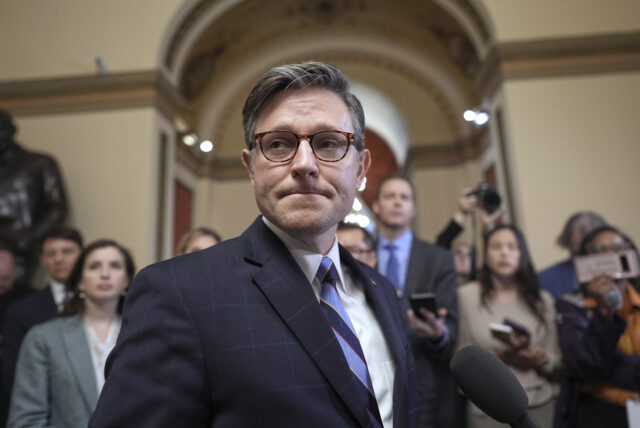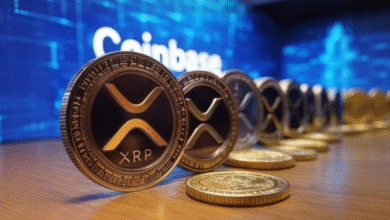House Republican Tax Bill: Wealthy Households Benefit Most

The House Republican Tax Bill has ignited fierce debate as it primarily channels financial benefits to the wealthiest Americans, raising concerns about its impact on low-income households. This legislation includes significant tax cuts for the wealthy, alongside key changes to income tax rates and the controversial SALT deduction, which critics argue exacerbate economic inequality. Economists predict that while high earners will see a notable increase in income, low-income families may experience detrimental effects, particularly from proposed Medicaid cuts and reductions in social safety programs. Analysts have noted that the vast majority of tax relief measures are tailored for affluent individuals, leaving those in the lower income bracket to shoulder the burden of funding these cuts. As the bill progresses to the Senate, its implications on economic disparity remain a focal point of discussion and scrutiny across the nation.
The recent tax and spending proposal championed by House Republicans, commonly referred to as the GOP Tax Bill, has sparked significant controversy regarding its economic ramifications. Designed to provide substantial tax alleviations predominantly for higher-income earners, this legislation raises critical questions about its ramifications for economically vulnerable communities. While the tax reform is celebrated by some for its potential to lower business income taxes, it simultaneously proposes cuts to essential welfare programs like Medicaid and SNAP, which many low-income households rely on. The intricate balance of benefits distributed within this bill, particularly the retention of benefits such as the SALT deduction, suggests a skewed favorability towards wealthier taxpayers, prompting concerns from various economic analysts. As discussions ensue in the Senate, the potential shifts in income tax structures and social safety net programs are poised to significantly shape the financial landscape for millions of Americans.
Overview of the House Republican Tax Bill
The House Republican Tax Bill, formally known as the “One Big Beautiful Bill Act,” aims to overhaul the current tax system in a way that predominantly benefits affluent households. Experts highlight that the bill includes sizable tax cuts for the wealthy, making it financially advantageous primarily for high-earners and large corporations. Key provisions such as the increased SALT cap, tax cuts on business income, and reduced rates on capital gains illustrate how the legislation favors those in the top income brackets. Conversely, these tax provisions are projected to exacerbate income disparities, leaving lower-income households at a disadvantage.
This tax bill also features large budget allocations towards certain deductions and credits that predominantly align with the financial interests of wealthier Americans. While overall taxation rates will see a decrease for many, the bill’s impact varies greatly across income groups. For instance, while the top 10% of earners could see a tax reduction averaging $9,700 annually, the bottom 20% of households are expected to endure notable income declines. The congressional discussions around the bill continue, indicating further scrutiny and adjustments may occur before its finalization.
Frequently Asked Questions
What are the main tax cuts included in the House Republican Tax Bill for wealthy households?
The House Republican Tax Bill includes substantial tax cuts primarily benefiting wealthy households. These include significant reductions in business income tax rates, an increase in the SALT (State and Local Tax) deduction cap from $10,000 to $40,000, and favorable treatment for capital gains through tax breaks linked to opportunity zones. These measures are designed to favor affluent taxpayers, specifically targeting homeowners and investors.
How does the House Republican Tax Bill impact low-income households?
The House Republican Tax Bill is expected to negatively impact low-income households primarily through cuts to essential social safety net programs, such as Medicaid and SNAP. Analysis indicates that while some low earners may initially benefit from a higher standard deduction and child tax credit, they may ultimately see a decline in overall financial support, with the bottom 20% of earners facing an average income decrease.
What changes in income taxes can we expect from the House Republican Tax Bill?
The proposed House Republican Tax Bill includes changes to income tax rates and deductions, maintaining a lower top income tax rate of 37%. It also proposes higher deductions for some business owners which primarily benefits wealthier taxpayers. Income tax changes disproportionately favor the top earners, as the Congressional Budget Office highlights a projected income increase for the top 10% while predicting losses for lower-income groups.
Will the SALT deduction increase in the House Republican Tax Bill benefit low-income households?
No, the increase in the SALT deduction cap to $40,000 from $10,000 under the House Republican Tax Bill will not benefit low-income households. This tax break predominantly assists higher-income earners in high-tax states, as the bottom 80% of earners are expected to receive no advantages from this provision.
Are there any Medicaid cuts associated with the House Republican Tax Bill?
Yes, the House Republican Tax Bill includes significant cuts to Medicaid, enforcing stricter work requirements and reducing overall federal spending on the program. It is estimated that federal spending on Medicaid could decline by approximately $700 billion through 2034, impacting low-income households who rely heavily on these benefits for healthcare support.
| Key Point | Details |
|---|---|
| Tax Benefits Distribution | The House Republican Tax Bill primarily benefits wealthy households with significant tax breaks. |
| Impact on Income Levels | Top 10% of earners could see a 4% increase in income by 2027, while the bottom 10% may face a 2% income drop. |
| Reduction of Safety Net Programs | Program cuts to Medicaid and SNAP could adversely affect lower-income households. |
| Overall Tax Cuts | Around 60% of the bill’s tax cuts will benefit the top 20% of households. |
| Child Tax Credit Increase | The plan includes boosting the child tax credit, which may not cover the tax liabilities of many low earners. |
| Potential Backlash | There is concern over exacerbating income inequality through this tax and spending package. |
| Senate Review | The bill will proceed to the Senate, where further amendments may be made. |
Summary
The House Republican Tax Bill, which has sparked significant debate, is designed to favor the wealthy while imposing cuts on essential programs for low-income families. With tax benefits skewed towards high earners, the legislation is predicted to decrease incomes for the poorest households, amidst larger tax cuts for the affluent. As this bill progresses to the Senate for consideration, the implications for income equality and social safety nets remain a critical point of discussion.




